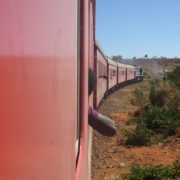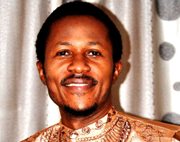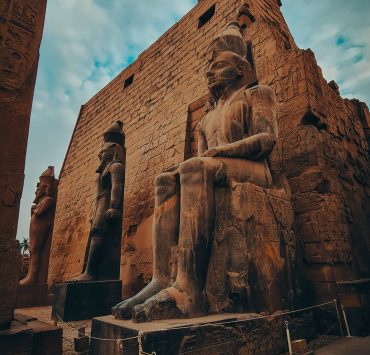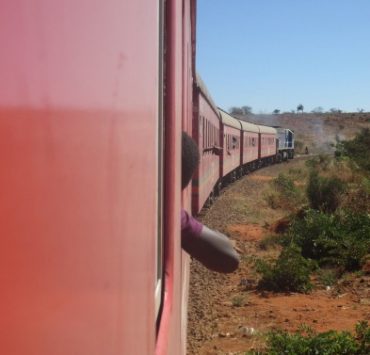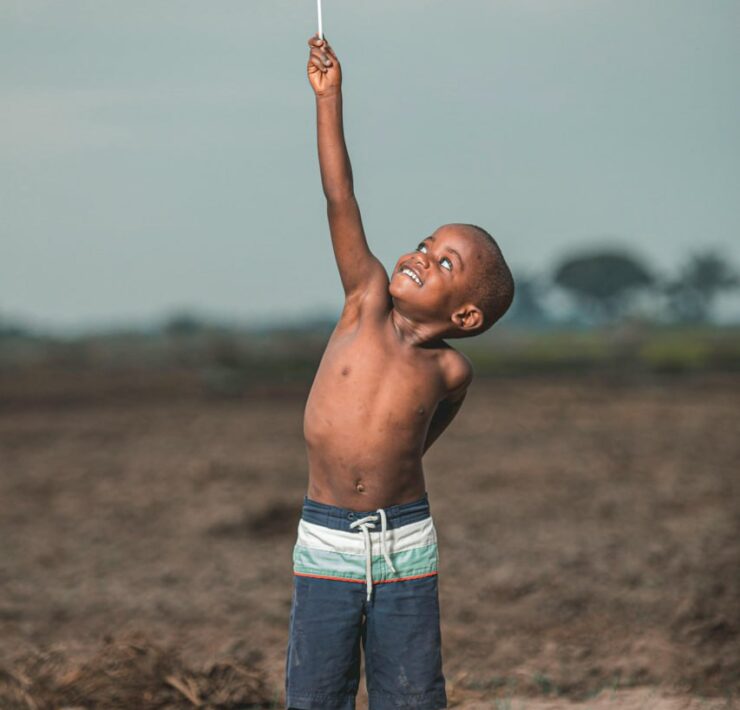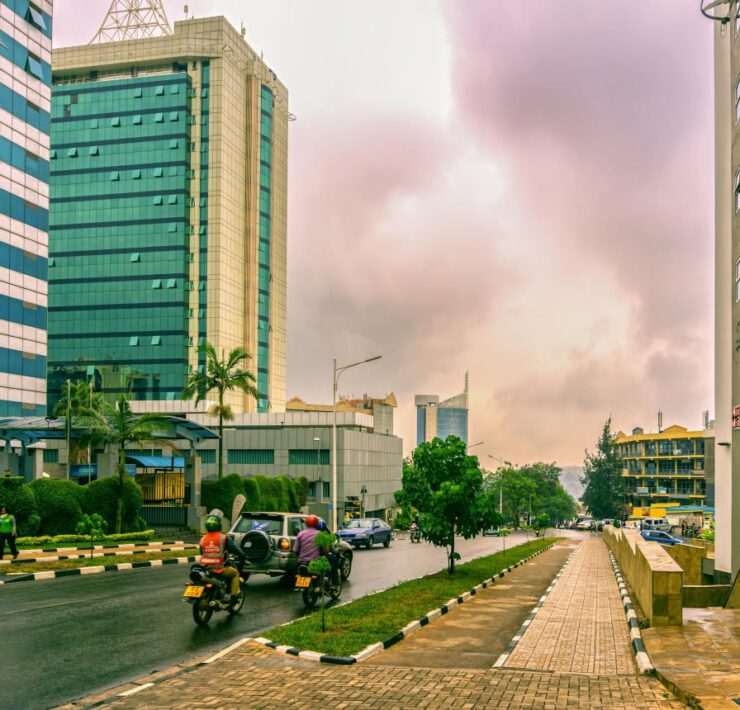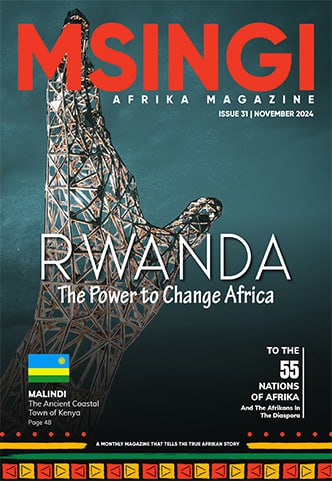
Lawrence Freeman is a Political-Economic Analyst for Africa, who has…
Read Next
Nigeria and Ghana making nuclear power part of their future
A nuclear power plant
March 12, 2021
It is essential that African nations advance their plans to build nuclear plants as part of their energy grid. That is why the efforts of Nigeria and Ghana should be hailed as progress for the continent. Africa`s Future Depends on Adopting Nuclear Power Generation
The lack of energy is killing more Africans that any other cause of death. My estimate is that the nations of Africa should acquire at least 1,000 gigawatts-1,000,000 megawatts-of electrical power to raise the standard of living of the populations to that of a modern industrialized society. Nuclear energy must be an increasing share of the continent’s energy generation.
Construction and operation of nuclear energy will also elevate the skill level of the domestic workforce. Nuclear energy complexes will serve as training centers for skilled workers, engineers and scientists to operate a higher level of technology.
Energy is an indispensable element of the infrastructure platform that every nation requires to expand its economy. Energy poverty sustains poverty because electricity
Energy is vital for:
- industrialization
- manufacturing
- agricultural & agricultural processing
- transportation,
- schools
- hospitals
- vaccine production and distribution
- homes
- elimination poverty & hunger
Let us encourage more African nations to expand their energy grid with nuclear power
Nigeria invites bids as it prepares to construct its first nuclear power plant, amid security concerns
Busineess Insider Africa
EMMANUEL ABARA BENSON March 2, 2022 10:41 AM
- The nuclear power plant is projected to become Nigeria’s largest power plant and could potentially solve the country’s electricity challenges.
- However, there are have been concerns about the country’s ability to manage a nuclear power plant, considering its peculiar security challenges.
- Note that the bidding process is very critical to any nuclear power project, according to the International Atomic Energy Agency.
The Nigerian Government said it has commenced the bidding process in preparation for the construction of a 4000 megawatts nuclear power plant in the country.
The Director General of the Nigerian Nuclear Regulatory Agency, Dr Yau Idris, disclosed this while speaking during the Nigerian International Energy Summit in Abuja, yesterday. According to him, the nuclear power plant is projected to become Nigeria’s largest power plant, and could significantly improve the West African country’s power generation capacity.
Meanwhile, there have been concerns about Nigeria’s ability to manage a nuclear power plant, considering the delicate nature of such a project as well as the country’s peculiar security situation. Dr Idris addressed these concerns during his speech, stressing that it is wrong for anyone to assume that Nigeria’s is incapable of managing a nuclear project.
“There are mechanisms put in place that ensure any country can build a nuclear power plant. Nigeria is trying to deliver 4,000MW of electricity through nuclear power. We are trying to construct four units and we are at the bidding stage,” he was quoted by local media to have said.
It should be noted that the bidding process is very critical to any nuclear power project. A report by the International Atomic Energy Agency (IEAE) titled “Invitation and Evaluation of Bids for Nuclear Power Plants”, detailed the requirements and processes for ensuring a successful bid.
“The development of a nuclear programme is a major undertaking requiring attention to many complex and interrelated tasks over a long duration. One of them is the bidding process, which includes the development of bid invitations specifications, the evaluation of bids and the contracting with the successful bidder (contractor). The necessary infrastructure should be developed to the point of readiness for a bidding process to acquire a nuclear power plant (NPP). Therefore, the preparatory phase preceding the bidding process includes numerous activities, such as but not limited to, energy system planning, siting and feasibility studies, environmental impact assessment, development of nuclear related legislation, financing, organization of the regulatory authority, etc,” part of the report said.
Nigeria is a member of the International Atomic Energy Agency, and as such is required to strictly adhere to the requirements for bids. And ultimately, the goal is to ensure that the successful bidder (i.e., the winning contractor) has all it takes to enable the licensing, construction, commissioning and operation of a nuclear power plant.
Ghana looks to small modular reactor technology for nuclear deployment
ByTheresa SmithMar 9, 2022

The US and Ghana will partner under the Foundational Infrastructure for Responsible use of Small Modular Reactor Technology (FIRST) to support the West African country’s foray into the nuclear sector.
The FIRST programme, led by the US Department of State, will support Ghana’s adoption of small modular reactor (SMR) technology. This includes support for stakeholder engagement, advanced technical collaboration and project evaluation and planning. Japan has been a valuable partner with the US on the FIRST programme and will build on its existing partnership with Ghana to advance Ghana’s civil nuclear power aspirations.
Have you read?
US and Ghana sign memorandum with a focus on nuclear
Speaking at a virtual launch of the programme, US Ambassador Stephanie Sullivan said clean, reliable and safe nuclear energy could provide significant benefits to the people of Ghana, including clean energy, agricultural improvements, clean water and advanced medical treatment. “Next-generation nuclear energy, like what we’re working on today, must be part of the solution,” said Sullivan.
According to Ghana’s Minister of Energy Dr Matthew Opoku Prempeh, the decision to include nuclear power in the nation’s energy mix has led to establishing Nuclear Power Ghana Limited as an Owner Operator and project developer. The FIRST Programme will help Ghana develop the competencies of the Nuclear Power Ghana Limited to build and operate safely Ghana’s first nuclear power plant.
From the archives
The drive for an African nuclear energy market
Drawing on 60 years of US experience working with nuclear energy, the FIRST programme provides capacity-building support to partner countries as they develop their nuclear energy programmes. To date, the US Department of State has announced $7.3 million to support FIRST projects around the world.
Professor Samuel Boakye Dampare, Director General of the Ghana Atomic Energy Commission the capacity building activities are meant to strengthen their national technical support organisation. “For us regulators, our success will be a very stringent, logical and transparent licensing regime that emphases safety throughout the lifetime of our future power plants(s), whether SMRs or larger reactors,” said Dampare.
Initial training in Ghana during 2022 will focus on stakeholder engagement, licensing and regulatory development, financing, workforce development and nuclear security, safety and non-proliferation.
Subscribe now for updates from Msingi Afrika Magazine!
Receive notifications about new issues, products and offers.
What's Your Reaction?
 PIN IT
PIN ITLawrence Freeman is a Political-Economic Analyst for Africa, who has been involved in economic development policies for Africa for over 30 years. He is the creator of the blog: lawrencefreemanafricaandtheworld.com. Mr. Freeman’s stated personal mission is; to eliminate poverty and hunger in Africa by applying the scientific economic principles of Alexander Hamilton








